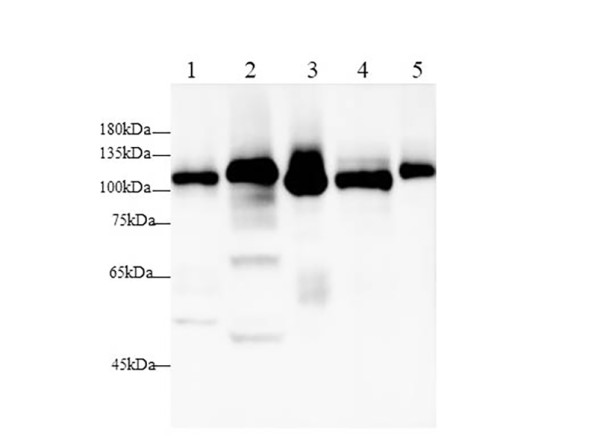Cookie preferences
This website uses cookies, which are necessary for the technical operation of the website and are always set. Other cookies, which increase the comfort when using this website, are used for direct advertising or to facilitate interaction with other websites and social networks, are only set with your consent.
Configuration
Technically required
These cookies are necessary for the basic functions of the shop.
"Allow all cookies" cookie
"Decline all cookies" cookie
CSRF token
Cookie preferences
Currency change
Customer-specific caching
FACT-Finder tracking
Individual prices
Selected shop
Session
Comfort functions
These cookies are used to make the shopping experience even more appealing, for example for the recognition of the visitor.
Note
Show the facebook fanpage in the right blod sidebar
Statistics & Tracking
Affiliate program
Conversion and usertracking via Google Tag Manager
Track device being used

| Item number | Size | Datasheet | Manual | SDS | Delivery time | Quantity | Price |
|---|---|---|---|---|---|---|---|
| E-AN006030L.25 | 25 µl | - | - |
7 - 16 business days* |
109.00€
|
||
| E-AN006030L.100 | 100 µl | - | - |
7 - 16 business days* |
316.00€
|
If you have any questions, please use our Contact Form.
You can also order by e-mail: info@biomol.com
Larger quantity required? Request bulk
You can also order by e-mail: info@biomol.com
Larger quantity required? Request bulk
Dipeptidyl peptidase-4 (DPP4) or adenosine deaminase complexing protein 2 (ADCP 2) or T-cell... more
Product information "DPP4/CD26 Polyclonal antibody"
Dipeptidyl peptidase-4 (DPP4) or adenosine deaminase complexing protein 2 (ADCP 2) or T-cell activation antigen CD26 is a serine exopeptidase belonging to the S9B protein family that cleaves X-proline dipeptides from the N-terminus of polypeptides, such as chemokines, neuropeptides, and peptide hormones. The enzyme is a type II transmembrane glycoprotein, expressed on the surface of many cell types. It is also present in serum and other body fluids in a truncated form (sCD26/DPPIV). The soluble CD26 (sCD26) as a tumour marker for the detection of colorectal cancer (CRC) and advanced adenomas. As both a regulatory enzyme and a signalling factor, DPP4 has been evaluated and described in many studies. DPP4 inhibition results in increased blood concentration of the incretin hormones glucagon-like peptide-1 (GLP-1) and gastric inhibitory polypeptide (GIP). This causes an increase in glucose-dependent stimulation, resulting in a lowering of blood glucose levels. Recent studies have shown that DPP4 inhibitors can induce a significant reduction in glycosylated haemoglobin (HbA(1c)) levels, either as monotherapy or as a combination with other antidiabetic agents. Research has also demonstrated that DPP4 inhibitors portray a very low risk of hypoglycaemia development, and are a new pharmacological class of drugs for treating Type 2 diabetes. Protein function: Cell surface glycoprotein receptor involved in the costimulatory signal essential for T-cell receptor (TCR)-mediated T- cell activation (PubMed:10900005, PubMed:10951221, PubMed:11772392, PubMed:17287217). Acts as a positive regulator of T-cell coactivation, by binding at least ADA, CAV1, IGF2R, and PTPRC (PubMed:10900005, PubMed:10951221, PubMed:11772392, PubMed:14691230). Its binding to CAV1 and CARD11 induces T-cell proliferation and NF-kappa-B activation in a T-cell receptor/CD3-dependent manner (PubMed:17287217). Its interaction with ADA also regulates lymphocyte-epithelial cell adhesion (PubMed:11772392). In association with FAP is involved in the pericellular proteolysis of the extracellular matrix (ECM), the migration and invasion of endothelial cells into the ECM (PubMed:10593948, PubMed:16651416). May be involved in the promotion of lymphatic endothelial cells adhesion, migration and tube formation (PubMed:18708048). When overexpressed, enhanced cell proliferation, a process inhibited by GPC3 (PubMed:17549790). Acts also as a serine exopeptidase with a dipeptidyl peptidase activity that regulates various physiological processes by cleaving peptides in the circulation, including many chemokines, mitogenic growth factors, neuropeptides and peptide hormones such as brain natriuretic peptide 32 (PubMed:10570924, PubMed:16254193). Removes N-terminal dipeptides sequentially from polypeptides having unsubstituted N-termini provided that the penultimate residue is proline (PubMed:10593948). [The UniProt Consortium]
| Keywords: | Anti-ADCP2, DPP4/CD26 Polyclonal antibody |
| Supplier: | Elabscience |
| Supplier-Nr: | E-AN006030L |
Properties
| Application: | WB |
| Antibody Type: | Polyclonal |
| Conjugate: | No |
| Host: | Rabbit |
| Species reactivity: | mouse,rat |
| Immunogen: | Recombinant Human DPP4/CD26 protein expressed by Mammalian |
Database Information
| KEGG ID : | K01278 | Matching products |
| UniProt ID : | P27487 | Matching products |
| Gene ID : | GeneID 1803 | Matching products |
Handling & Safety
| Storage: | -20°C (protect from light) |
| Shipping: | -20°C (International: -20°C) |
Caution
Our products are for laboratory research use only: Not for administration to humans!
Our products are for laboratory research use only: Not for administration to humans!
Information about the product reference will follow.
more
You will get a certificate here
Viewed

